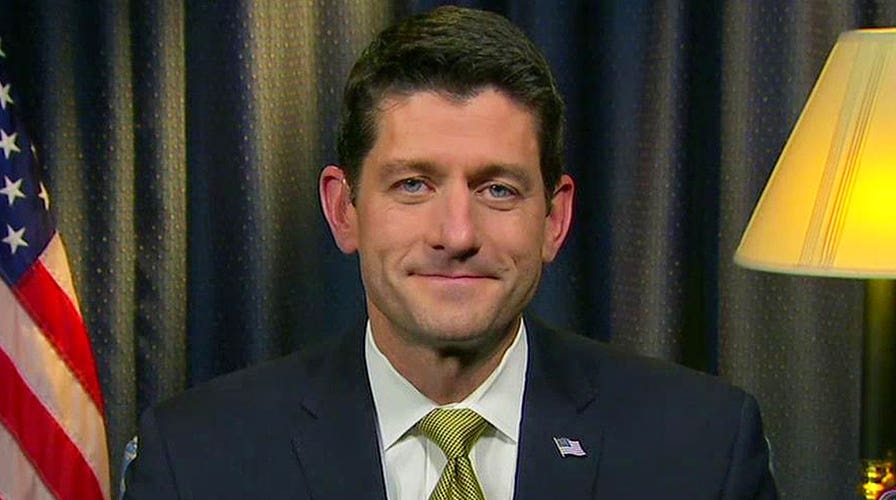Rep. Paul Ryan: Obama's actions 'remarkably unpresidential'
House speaker reacts on 'Hannity' to Syrian refugee security concerns
President Obama this week will submit to Congress his fiscal 2017 budget proposal in which he’ll ask for twice as much spending on so-called “green-energy” research and development over roughly the next three years.
However, the GOP-led Congress is likely to reject the request, amid skepticism about the science behind global warming, which has been attributed in part to burning coal and other fossil fuels.
Capitol Hill Republicans and others have also dismissed Obama’s call to deal urgently with the global warming issue, which he has suggested poses a great threat that terrorism to future generations.
In fact, House Budget Committee Chairman Tom Price, R-Ga., and Senate Budget Committee Chairman Mike Enzi, R-Wyoming, will ignore Obama’s budget package, amid the country being roughly $19 trillion in debt.
“It appears the president’s final budget will continue to focus on new spending proposals instead of confronting our government’s massive overspending and debt,” Enzi recently said.
He and Price will instead go straight into crafting their own budgets and castigate what the White House engineered.
Obama is scheduled to deliver the spending blueprint Tuesday for the budget year that begins Oct. 1.
The release will come on the day when New Hampshire voters get their say in the first presidential primary of the 2016 race to succeed him.
"Rather than subsidize the past, we should invest in the future," Obama said in his weekly radio and Internet address, outlining his wish for the increased spending.
Federal spending on research and development of clean energy would jump from $6.4 billion this year to $12.8 billion by 2020 under Obama's proposal, administration officials said.
Spending would increase by about 15 percent in each of the five years of the pledge. If approved, the budget that takes effect Oct. 1 would provide $7.7 billion for clean energy research and development across 12 federal departments and agencies for the 2017 fiscal year.
Obama's proposal is part of an initiative he announced at last year's U.N. climate conference in Paris.
Some 20 countries, including the U.S., China, India and Brazil, have committed to double their respective budgets for this type of research over five years.
The White House said last week that Obama wants oil companies to pay a $10 fee on every barrel of oil to help raise money for spending on clean transportation to combat climate change. House Speaker Paul Ryan, R-Wis., immediately declared the president's proposed oil tax "dead on arrival."
Fox News’ Chad Pergram and The Associated Press contributed to this report.





